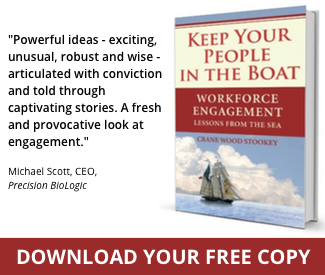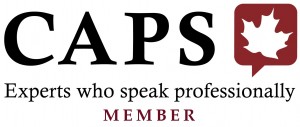 What does it take for your business to be a great place to work? Many business leaders have figured this out, each in their own way. And it’s exactly the each-in-their-own-way part that is the key to leading an award-winning workplace.
What does it take for your business to be a great place to work? Many business leaders have figured this out, each in their own way. And it’s exactly the each-in-their-own-way part that is the key to leading an award-winning workplace.
There’s no formula for being a great place to work, no 5 Easy Steps. There are however two principles we see reflected in businesses that boast low turnover, few sick days, high internal promotion, few grievances and high individual initiative; all good measures of a workplace’s health.
The first principle is, work is personal. We often say, “Don’t take it personally, it’s just business,” but really we want people to take their work personally, to feel that their work is worth their personal best. Getting people to bring their personal best to work is the holy grail of leadership. If we want to lead people to bring their personal best to work, we have to get personal.
Some leaders are more naturally personable than others, but that’s not what we’re talking about. Personality is not a business strategy. Getting personal means treating employees as individual persons, each in their own way. How can you support each person, individually, to get their work done in a way that makes them feel willing, and able, to do their personal best?
The second principle is the answer to this last question. It has three parts:
Give what’s needed Don’t give what’s not needed Know the differenceKnowing the difference is the hard part, but it’s what distinguishes great leadership and creates great workplaces. How do you know the difference?
The first step is simply acknowledging that the surest way to miss what’s needed and give what’s not needed is thinking, “I know what people need, and it’s my job to give it to them. That’s what’s expected of a leader.” You may pride yourself as a business leader on having the savvy to know what to do and the hutzpah to get it done, but at this point those are habits of mind that may not serve you well. What people need from a leader is not all the right answers, which no one has anyway, but the right questions, asked at the right time of the right people.
When it comes to supporting your people’s personal best, you need a culture of not-knowing, a culture of curiosity.
This culture of not-knowing calls for habits of mind that are curious, accommodating and non-judgmental. It’s about ongoing personal conversations. “What would help you thrive at work? What do you need more of, what do you need less of?” It will be different for each person.
You can make it your daily personal practice to ask questions like this; as an expected part of meetings, just passing someone in the hall, or wherever you can. You can probe the answers, to help the person clarify what they’re really asking for and to be sure you understand. If the request isn’t something you can immediately meet, you can ask, “What part of that would be easiest for us to start with?” Or if the request seems extreme, you don’t have to cut it off with, “Well, let’s be realistic.” You can continue the conversation, including other people too. “How can we do that?” You can be transparent about what you see as the obstacles. People may have a creative answer that surprises you. The culture of curiosity and mutual support these questions create allows you to distribute resources (time, talent, money, materials, supervision, support, collaboration, goodwill) in the most efficient and personally satisfying way possible.
Many organizations are too big or spread out for you to have these conversations with everyone. That’s no problem, because these conversations can happen up, down and across the organization, between everyone. A place where everyone is committed to finding out and trying to provide what their fellow employees need in order to thrive at work, is a great place to work.
To lead any kind of cultural shift, it’s your habits of mind that are the first obstacles. In sports, “the mind is the athlete,” and it’s the same in business. To help you and your executive team shift your habits of mind it can be helpful to work with an organizational coach, who can ask you the right questions at the right time, and be an accountability partner. But simply starting to ask your people what they need can in itself challenge your thinking habits. You can practice stepping past any habitual limiting reactions you have to these conversations, and let your people be your teachers. Leaders who learn from their people are one thing everyone needs.
First published in Progress Magazine


